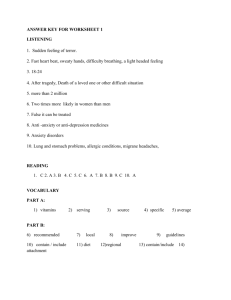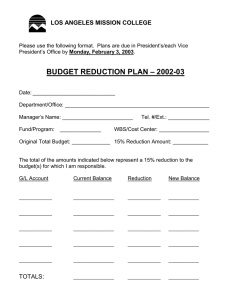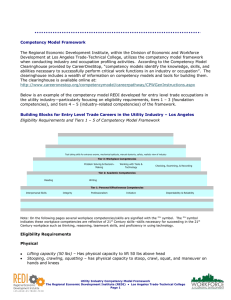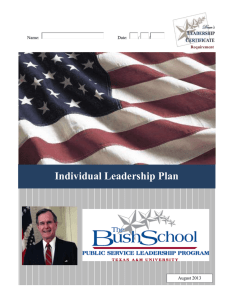Print your CHECKLIST here
advertisement
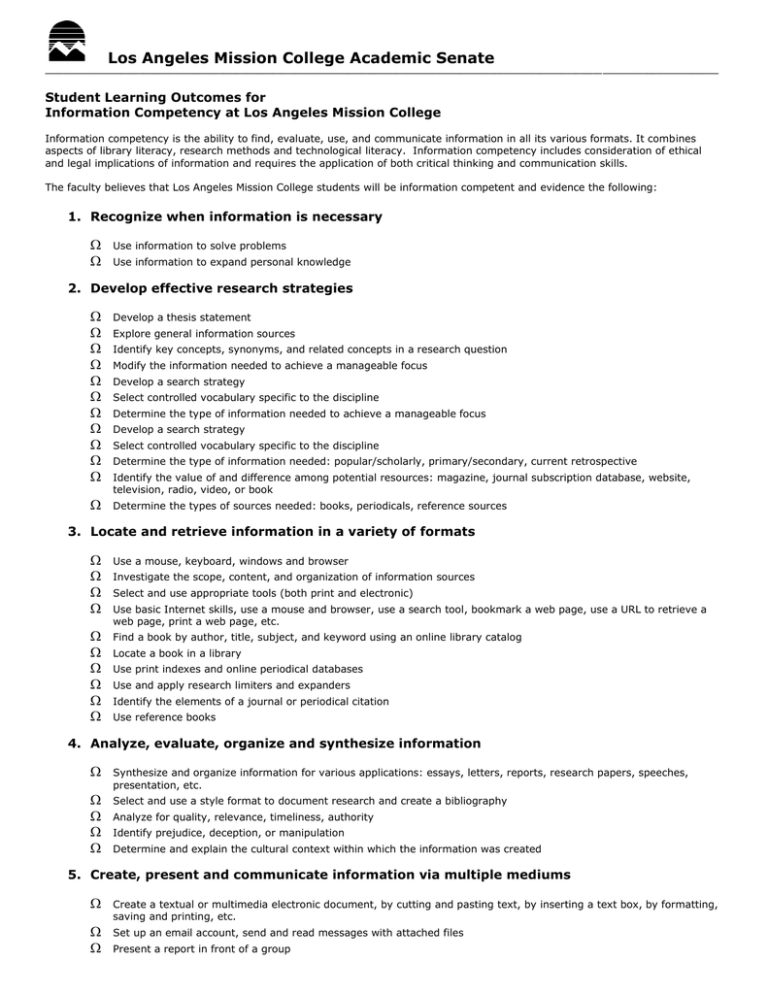
Los Angeles Mission College Academic Senate _____________________________________________________________________________________________________________________________ __________________________ Student Learning Outcomes for Information Competency at Los Angeles Mission College Information competency is the ability to find, evaluate, use, and communicate information in all its various formats. It combines aspects of library literacy, research methods and technological literacy. Information competency includes consideration of ethical and legal implications of information and requires the application of both critical thinking and communication skills. The faculty believes that Los Angeles Mission College students will be information competent and evidence the following: 1. Recognize when information is necessary Use information to solve problems Use information to expand personal knowledge 2. Develop effective research strategies Develop a thesis statement Determine the types of sources needed: books, periodicals, reference sources Explore general information sources Identify key concepts, synonyms, and related concepts in a research question Modify the information needed to achieve a manageable focus Develop a search strategy Select controlled vocabulary specific to the discipline Determine the type of information needed to achieve a manageable focus Develop a search strategy Select controlled vocabulary specific to the discipline Determine the type of information needed: popular/scholarly, primary/secondary, current retrospective Identify the value of and difference among potential resources: magazine, journal subscription database, website, television, radio, video, or book 3. Locate and retrieve information in a variety of formats Use a mouse, keyboard, windows and browser Find a book by author, title, subject, and keyword using an online library catalog Investigate the scope, content, and organization of information sources Select and use appropriate tools (both print and electronic) Use basic Internet skills, use a mouse and browser, use a search tool, bookmark a web page, use a URL to retrieve a web page, print a web page, etc. Locate a book in a library Use print indexes and online periodical databases Use and apply research limiters and expanders Identify the elements of a journal or periodical citation Use reference books 4. Analyze, evaluate, organize and synthesize information Synthesize and organize information for various applications: essays, letters, reports, research papers, speeches, presentation, etc. Select and use a style format to document research and create a bibliography Analyze for quality, relevance, timeliness, authority Identify prejudice, deception, or manipulation Determine and explain the cultural context within which the information was created 5. Create, present and communicate information via multiple mediums Create a textual or multimedia electronic document, by cutting and pasting text, by inserting a text box, by formatting, saving and printing, etc. Set up an email account, send and read messages with attached files Present a report in front of a group 6. Use information legally and ethically Recognize what intellectual property is and how copyright protects it Identify and avoid plagiarism Obtain permission to copy, use or modify documents, images, web pages and media created by others Cite print, electronic, text and image sources in a document Question issues related to censorship and freedom of speech http://www.lamission.edu/curriculum/forms/Info_Comp.pdf

